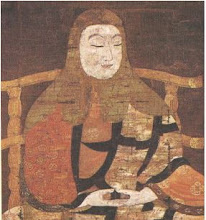「文頭ではButではなくHoweverを使え」という話を耳にすることがある。彼らは、
(1)
I went to see Mike. But he wasn't
there.
のように文頭でButを用いるのは誤りで、
(2)
a. I went to see Mike, but he wasn't
there.
b. I went to see Mike. However, he wasn't there.
と書き換えねばならないと主張する。彼らの主張は、どうやらand, butといった「等位接続詞」(coordinate
conjunction)は、主語と動詞が2組ある「重文」(compound sentence)(2.a)で用いるもので、1組しかない「単文」(simple sentence)(1)では使えないということのようである。
しかし現実の英語を見れば、新聞雑誌的なものから学術論文に至るまで、「文頭のBut」が否定されるような状況にないことは誰の目にも明らかである。
ここで、これらの文はニュアンスの違いによって次のように区別できると思われる。
(3) a. I went to see Mike, but he wasn't there.
(私はマイクに会いに行ったが、彼はそこには居なかった)
(私はマイクに会いに行ったが、彼はそこには居なかった)
b. I went to see Mike. But he wasn't there.
(私はマイクに会いに行った。しかし彼はそこには居なかった)
c. I went to see Mike. However, he wasn't there.
(私はマイクに会いに行った。しかしながら、彼はそこには居なかった)
「文頭のBut」を否定する人たちは、受験英語や学術英語といった特殊な英語空間の中だけにいるために実際の英語に触れる機会がなく「文頭のBut」を目にしない、ということなのだろうか。あるいは、実際に使われているのを知りつつも、これが誤用だという「固定観念」(stereotype)に縛られてしまっていて現実を否定し無視しているのであろうか。
『英文法解説』『英文法総覧』『ロイヤル英文法』など手元にある文法書を一通り確認したが「文頭のBut」に関する記述は見当たらなかった。インターネット上にはこのような指摘を行っているページも見られるが、根拠が示されておらず趣味嗜好の域を出ない。
百歩譲ったとしても、これはあくまでも「べき論」であり「文体」(style)の問題でしかない。したがって、試験で「文頭のBut」を用いたとしても減点される謂(い)われはない。
『ジーニアス英和辞典』(大修館書店)には次のように書かれている。
(4) 書き言葉でbutを文頭に用いるのは間違いではないが避けた方がよいとされる。
確かに「文語体」(literary style)においてbutのような軽い語を用いるのは、特に格調の高さが求められる学術論文などでは、出来得れば避けられるべきものなのであろうとは推察され得るけれども、一般的な「書き言葉の英語」(written English)までもbutが使えないなどと言うのは言い過ぎである。
(5) 文頭にbutを使うことはすぐれた作家にも見出されるが、抵抗を感じる人もいる。―『現代英米語用法事典』(研究社)
例を挙げてみよう。
(6) Poetry is not a turning loose of emotion, but an escape from
emotion; it is not the expression of personality, but an escape from
personality. But, of course, only those who have personality and
emotions know what it means to want to escape from these things.―T.S.Eliot, Tradition and the Individual
Talent
(詩は、情緒の解放ではなく情緒からの逃避である。個性の表現ではなく個性からの逃避である。しかし、勿論、個性と情緒がある人たちにしか、これらのことから逃れたいということが何を意味するのか分からない)
(7) Fatigue
is of many sorts, some of which are a much graver obstacle to happiness than
others. Purely physical fatigue, provided it is not excessive, tends if anything to be a cause of
happiness; it leads to sound sleep and a good appetite, and gives zest to the
pleasures that are possible on holidays. But when it is excessive it
becomes a very grave evil.―Bertrand Russell, The Conquest of
Happiness
(疲労には多くの種類があるが、幸福の大きな障碍となるものもあればならないものもある。純粋に肉体的な疲労は、過度でなければ、どちらかといえば幸福の原因となる。それは熟睡と旺盛な食欲をもたらし、休日に可能な楽しみに趣を添えてくれる。しかし度を越すと重大な禍となるのである)
(8) If this book dealt with a South Asian or Middle Eastern people, it
might well have started with a consideration of religion. Even for most Western
nations, religion would have required earlier and fuller treatment. But
religion occupies a more peripheral position in Japan.― Edwin O. Reischauer, The Japanese
(もし本書が南アジアや中東の民族を扱うとすれば、宗教を検討することから始めたかもしれない。大部分の西洋の民族にとってさえ、もっと早く充分に宗教を取り扱うことが要求されたであろう。しかし宗教が占める位置は日本では末梢的なものである)
T.S.エリオット、ラッセル、ライシャワーといった文豪たちが「文頭のBut」を用いているのを一体誰が咎め立てできるというのだろうか。
(9) A traditional grammatical rule asserts that sentences beginning with
and or but express "incomplete thoughts" and are
therefore incorrect. But this stricture has been ignored by writers from
Shakespeare to Joyce Carol Oates, and most of the Usage Panel sees wisdom in
this attitude. In our 1988 survey, when asked whether they paid attention to
the rule in their own writing, 24 percent answered "always or
usually," 36 percent answered "sometimes," and 40 percent
answered "rarely or never." ― The American Heritage Dictionary of the English language
(伝統的な文法規則では、andやbutで始まる文は「不完全な考え」を表すので正しくないとされている。しかしこの厳格さはシェイクスピアからジョイス・キャロル・オーツにいたるまでの作家たちにずっと無視されてきたし、語法委員会の大半がこの態度を賢明だと見なしている。我々の1988年の調査で、執筆する際この規則に注意を払うかどうかを尋ねたところ、24%が「必ずあるいは大抵」、36%が「時々」、40%が「滅多にないあるいは全くない」と答えた)
要するに、
(10) But may be used to begin a sentence at
all levels of style. ― ibid
(すべての文体レベルで文を書き始めるのにButを使ってもよい)
(すべての文体レベルで文を書き始めるのにButを使ってもよい)
ということである。文頭のAndも同様である。
(11) And beginning a sentence. That it is a
solecism to beginning a sentence with and is a faintly lingering
SUPERSTION. The OED gives examples ranging from the 10th to the 19th c; the
Bible is full of them. ―Fowler’s Modern
English Usage
(文を始めるand。andで文を始めるのは文法違反であるというのは、いまだ消えない「迷信」である。『オックスフォード英語大辞典』には10世紀から19世紀にまたがる数々の例が挙げられており、聖書にもたくさん見受けられるものである)
(12) You
use and at the beginning of a sentence to introduce something else that
you want to add to what you have just said. Some people think that starting a
sentence with and is ungrammatical, but it is now quite common in both
spoken and written English. ― English
Cobuild Dictionary
(文頭のandは、直前に言ったことに何か付け加えたいことを導くために用いられる。andで文を始めるのは非文法的だと思っている人もいるが、今では話し言葉の英語でも書き言葉の英語でもまったく一般的である)
しかし、事態はもっと進んでいる。1970年代に米国でPlain English(平易な英語)を推奨する運動が起こり現在もその流れにある。
(13) Perhaps we can all
agree that beginning a sentence with but isn't
wrong, slipshod, loose, or the like. But is it less formal? I don't think so.
In fact, the question doesn’t even reside on the plane of formality. The
question I'd pose is, What is the best word to do the job? William Zinsser
says, quite rightly, that but is the
best word to introduce a contrast(On Writing Well). I invariably change however,
when positioned at the beginning of a sentence, to but. Professional editors such as John Trimble regularly do the
same thing(Writing with Style).― Bryan A. Garner,
On Beginning Sentences with But, Michigan Bar Journal, October 2013
(butで文を始めることは間違いではないし、ぞんざいでもないし、だらしないなどといったことでもないということにおそらく皆が同意するだろう。しかし正式さに欠けるのか。私はそう思わない。それどころか、この問題は形式の次元にもない。私が問いたいのは、この働きを行う最良の語は何かということである。ウイリアム・ジンサーはまったく公正に、butが対比を導く最良の語だと言っている。私は必ず文頭に置かれたhoweverはbutに変えている。ジョン・トリンブルのようなプロの編集者も同じことを一様に行っている)
アカデミックな論文のように文を飾り立てる必要がなければ、プレイン・イングリッシュで書くべきである。その際、逆接の接続詞としてButが最良だということである。
逆に、逆接の接続副詞howeverは一般に文頭に置かない。
(14) Bury it between commas, or replace it with but or nevertheless.
(コンマとコンマの間に埋め込むか、butかneverthelessに置き換えよ)
(コンマとコンマの間に埋め込むか、butかneverthelessに置き換えよ)
Poor However, the day had not been entirely lost.
Improved But the day had not been entirely lost.
Poor However, the script that Alcuin invented became the forerunner of modern
handwriting.
handwriting.
Improved The script that Alcuin invented, however, became the forerunner of
modern handwriting.
- Sheridan Baker, The Complete Stylist

このコメントは投稿者によって削除されました。
返信削除